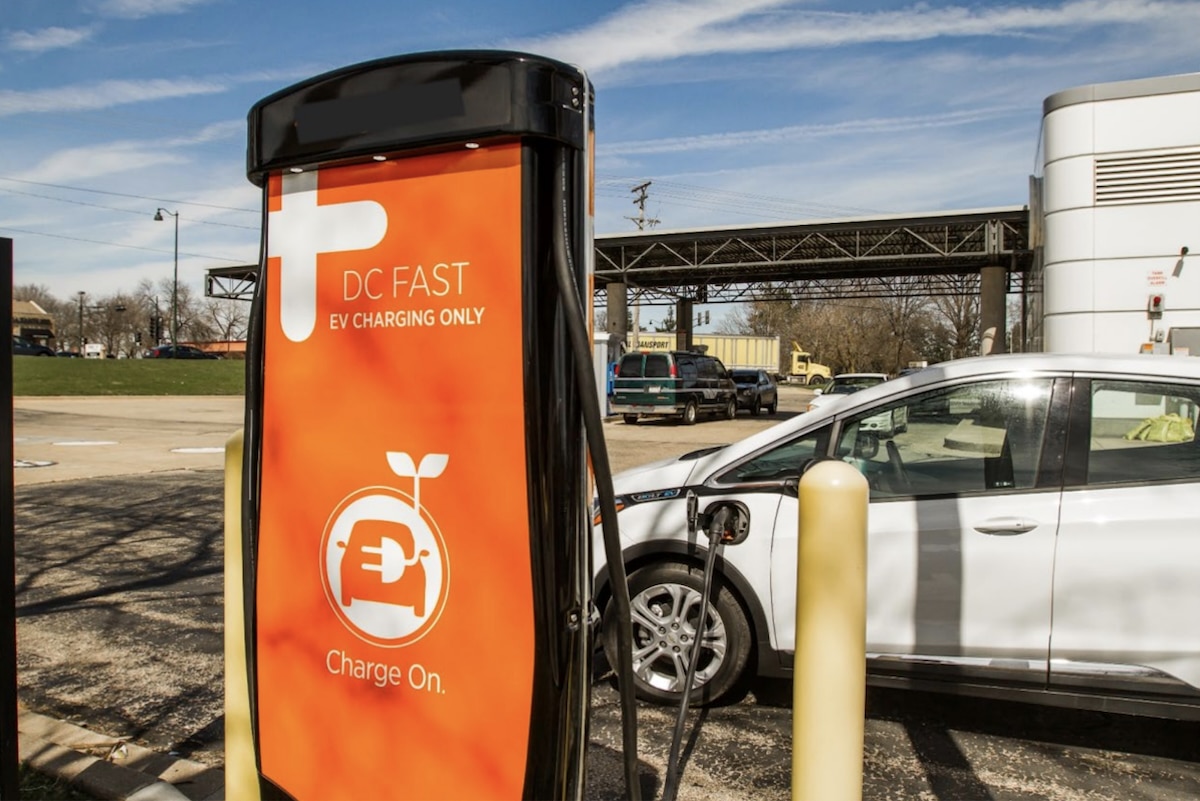An EV fast-charging station. U.S. Department of Transportation
Founded in 2005 as an Ohio-based environmental newspaper, EcoWatch is a digital platform dedicated to publishing quality, science-based content on environmental issues, causes, and solutions.
The Biden-Harris administration has announced $521 million in grants to go toward further development of electric vehicle charging infrastructure as well as infrastructure for alternative fuels. The funding will help deploy more than 9,200 EV charging ports, and the grants will be applied to projects across 29 states, eight Federally Recognized Tribes and Washington, DC.
With this news, the U.S. Department of Transportation noted that the number of EV chargers has doubled since the start of the current administration in 2021. According to the department, about 1,000 public EV chargers are added every week, and there are currently around 192,000 EV charging ports available to the public.
“The Biden-Harris Administration has taken action to ensure that America leads the EV revolution, and the historic infrastructure package includes resources to support a nationwide EV charger network so that all drivers have an accessible, reliable, and convenient way to charge their vehicles,” said U.S. Transportation Secretary Pete Buttigieg on Tuesday. “The awards that we’re announcing today will build on this important work and help ensure that the cost savings, health and climate benefits, and jobs of the EV future are secured for Americans across the country.”
The newly announced grants were made available through the Bipartisan Infrastructure Law via the Charging and Fueling Infrastructure (CFI) Discretionary Grant Program and the National Electric Vehicle Infrastructure (NEVI) Formula Program.
As Electrek reported, the funding will be split into two focus areas. About $321 million is allocated for 41 community projects, and $200 million will go to 10 corridor fast-charging projects.
Milwaukee, Wisconsin is one of the many communities being awarded funding for EV infrastructure. The city will install EV chargers at 53 sites. Another highlighted project is the Standing Rock Renewable Energy Power Authority, which is set to receive $3.9 million for EV charging stations at eight sites throughout the Sioux Reservation in North Dakota.
As for the corridor grant recipients, the Fort Independence Indian Community in California will receive $15 million for an EV charging hub along the the U.S. Route 395 corridor. The hub will be powered via a solar micro-grid and battery backup.
Another major corridor project is the $11.8 million DC fast-charging hub slated for the Hartsfield-Jackson Atlanta Airport in Georgia. A list of additional community and corridor project grant recipients are available here.
“Most EV charging will happen at homes, workplaces, or other destinations while vehicles are already parked, providing a safe, reliable, and vastly more convenient way for anyone to fuel,” Gabe Klein, executive director of the Joint Office of Energy and Transportation, said in a press release. “Today’s investments in public community charging fill crucial gaps and provide the foundation for a zero-emission future where everyone can choose to ride or drive electric for greater individual convenience and reduced fueling costs, as well as cleaner air and lower healthcare costs for all Americans.”
Subscribe to get exclusive updates in our daily newsletter!
By signing up, you agree to the Terms of Use and Privacy Policy & to receive electronic communications from EcoWatch Media Group, which may include marketing promotions, advertisements and sponsored content.
